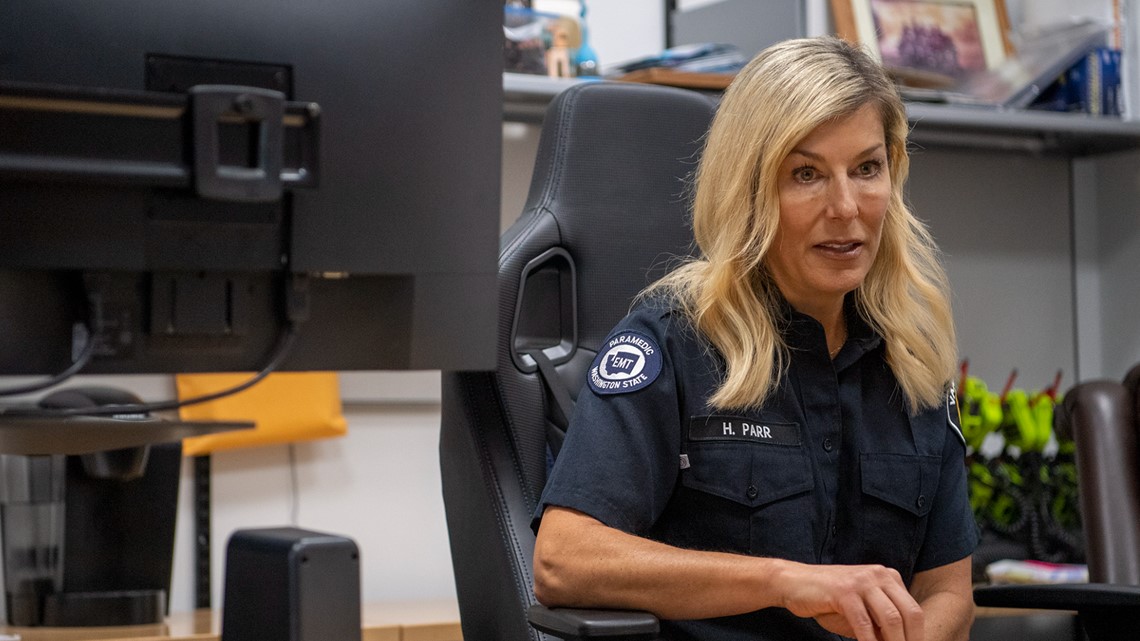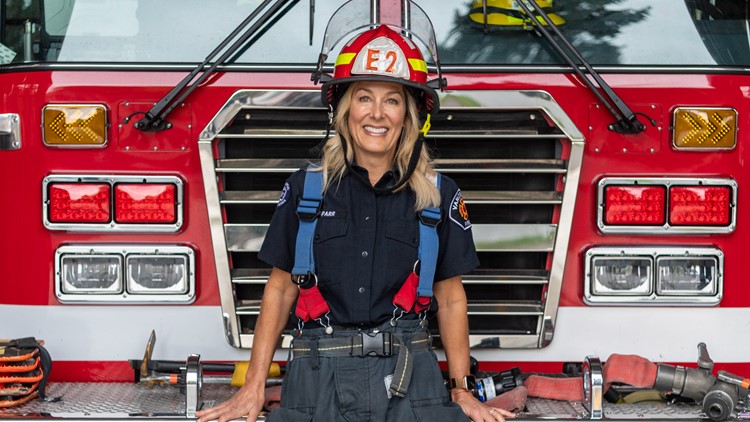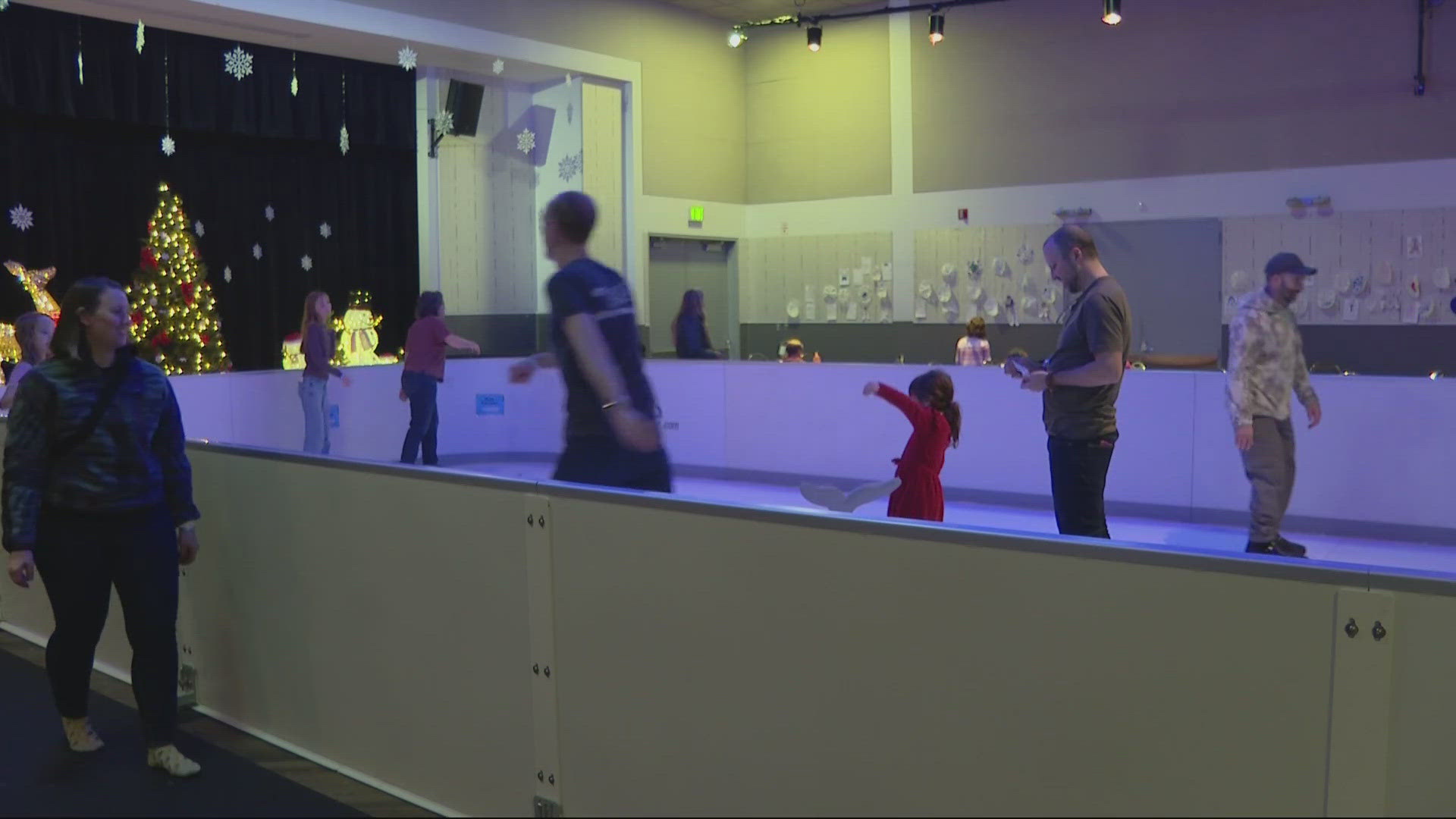VANCOUVER, Wash. — After more than 150 years of existence, the Vancouver Fire Department just formed its first all-female crew — and it wasn’t entirely planned.
Crew formations happen annually and are based on rank, paramedic classification and other parameters. At Fire Station 2, located in the Harney Heights neighborhood, Capt. Heidi Parr was matched to serve with Melissa Anthony and Hannah Nelson.
“It happened all on its own,” Parr said with a smile.
Out of the fire department’s 178 frontline firefighters and captains, only 10 are women. Two additional women are in one of the department’s many anticipated firefighter academies. The change, although incremental, is advancing the department’s goal of diversifying its staff to better reflect the community.
Meeting the crew
In 2002, Parr was the second woman to be hired at the department, joining Julie Ledoux, who retired as a firefighter in 2010. Parr was the first woman to be promoted to captain in 2017.
Yet, she didn’t always envision herself being in the profession.
Parr used to divert her gaze from crashes on the road; the mere thought of it made her dizzy. Instead, she was en route to becoming a pilot, just like her father. After college, she worked for the Mount Hood Ski Patrol, where she had to study emergency care, which soon directed her career trajectory toward attending paramedic school and, eventually, volunteering at the Hood River Fire Department.


Upon joining the Vancouver Fire Department, Parr felt welcomed into the “brotherhood,” as she formed bonds with fellow academy members through studying, testing and being hired together. However, she was pleased to finally see a crew like hers come into fruition, she said.
Parr and her team work hard to be physically strong for emergency situations. There are people who would assume that someone small wouldn’t be capable of being a firefighter, Parr said, but together, the crew members impress others with their abilities.
“I think a lot of women don’t even consider the fact that they’re capable,” she continued. “We’re a walking testament to the fact that if you have a desire and will, there’s a way.”
Nelson, who has worked at the department for two years, said it’s interesting to see the public’s reaction when they see the crew is all women.
As a mechanic in the Navy, Nelson experienced working in a predominantly male field. She was used to the dynamic of being in a brotherhood. Admittedly, she had to work harder to alter her colleagues’ preconceived notions about what a woman could do in the position. Nelson was eventually seen as adept, she said, but it took time.
Being in an all-female crew curtailed this assimilation process; although the women came from different walks of life, they shared similar experiences of being women in a male-dominated career field.
Nelson recalled being a child and wanting to be a firefighter. It wasn’t until she was in middle school that she met a female firefighter for the first time.
“I thought, ‘Wow, this is something I can actually do,’ ” she said.
“When (little girls) see us, they love it,” Parr said, noting the impression the crew has on the public.
The third crew member, Anthony, was unavailable for comment.
Promoting diversity
The formation of the fire department’s all-female crew was rare based on staff numbers. However, the department is aiming for this to become less unusual, Fire Chief Brennan Blue said.
“We want to have our workforce be more reflective of our community,” he added.
According to Vancouver government employee data, more than 91 percent of its fire employees are men. Most fire staff are white, with 7.5 percent being people of color.
Proposition 2, certified in February, provided the financial capacity for the fire department to hire up to 80 firefighters over the next three years. Blue said academies for recruits with prior firefighting experience are operational, and there are plans under development to reach those who are new to the career field.
The department will attend job fairs and collaborate with community groups, such as local League of United Latin American Citizens and NAACP chapters, to help shape its recruitment processes. Staff also suggested reducing application and testing fees for candidates to make the application process more accessible.
A culture shift
The city of Vancouver hired an investigator in 2016 to observe the fire department after a female firefighter reported that her male boss had walked in on her using the bathroom. The third-party research resulted in the discovery of more issues within the department as it related to gender bias and treatment of women.
Since then, changes were made to accommodate men and women working together, such as creating designated bathrooms and sleeping areas. Parr said the structural changes resolved some of the reported issues. There was also an increase of anti-harassment training within the department, according to previous reporting from The Columbian.
“I think there has been a realization in a bit of a culture shift that this is a team and family environment,” said Blue, who became fire chief in 2020. “We can respect each other’s differences and still work together in a cohesive environment. Most people here get it.”



